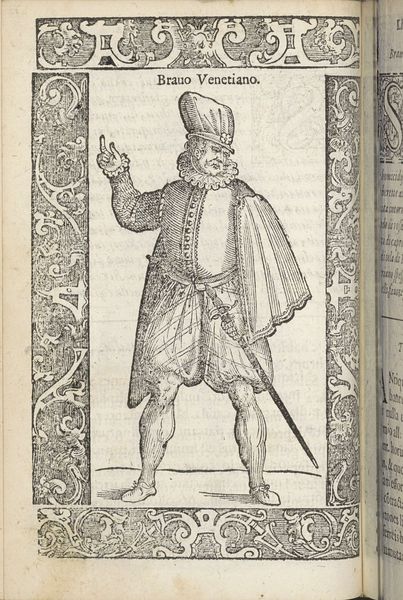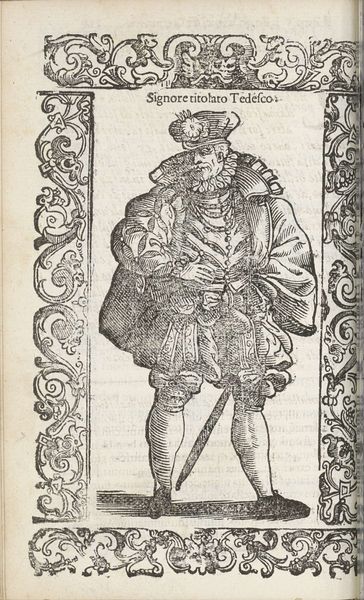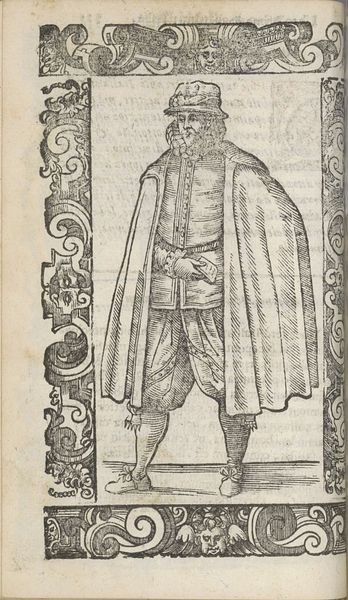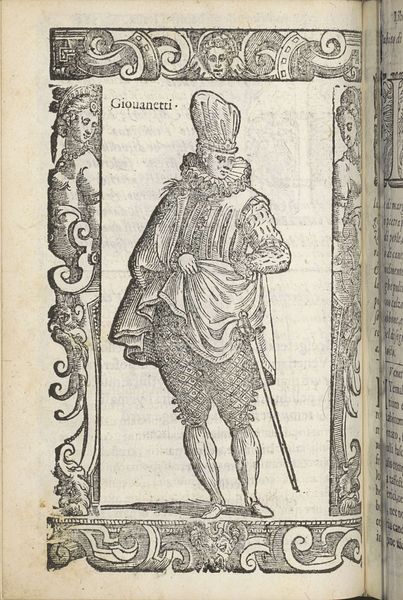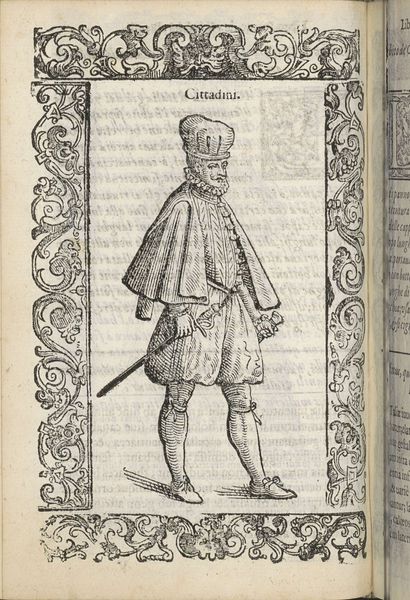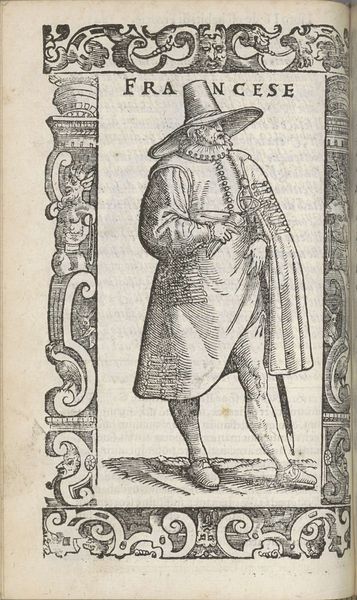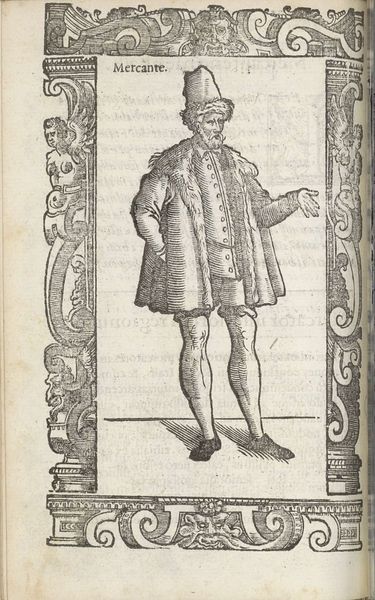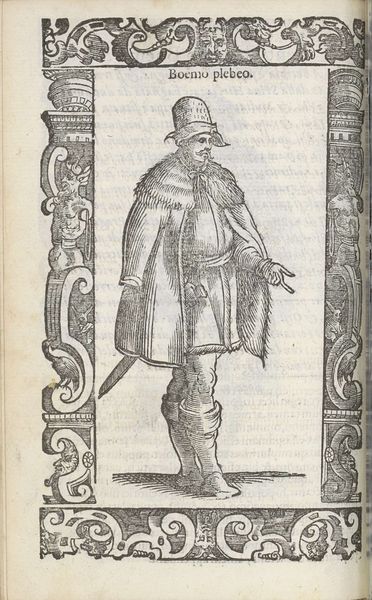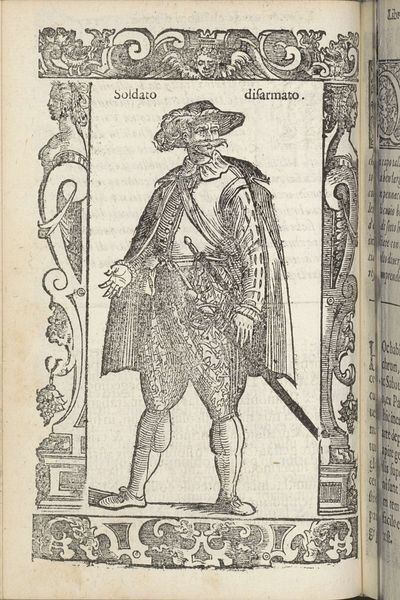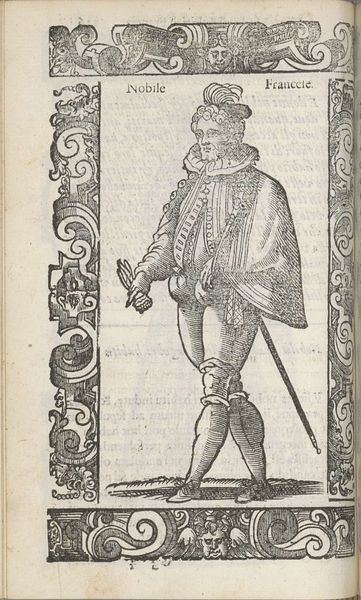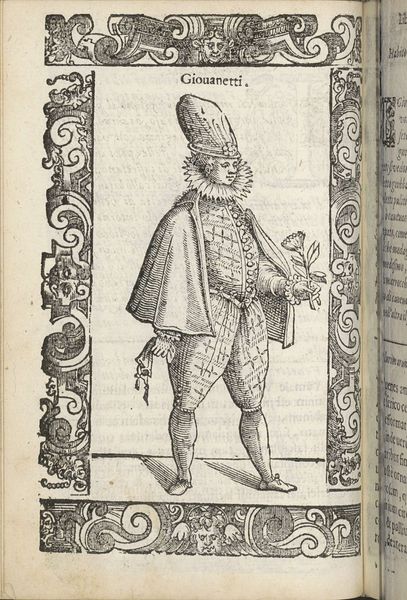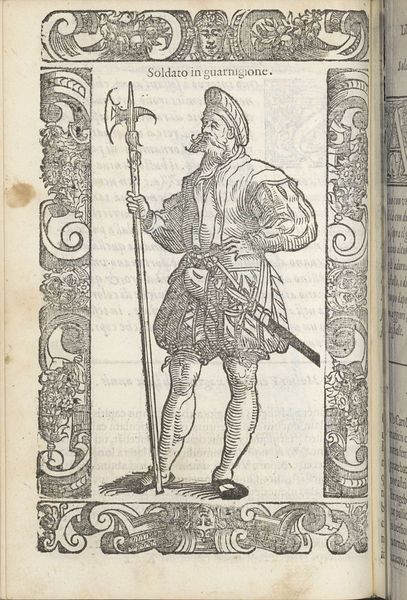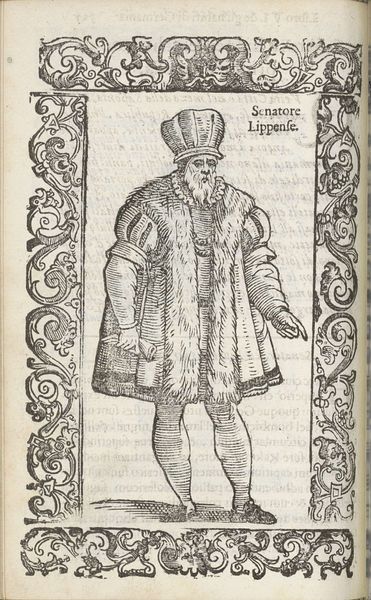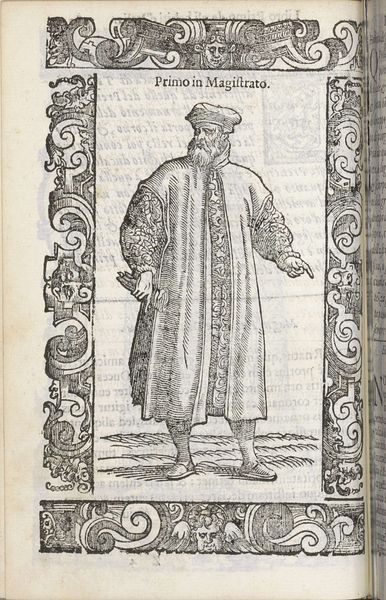
print, engraving
#
portrait
#
medieval
# print
#
old engraving style
#
mannerism
#
figuration
#
history-painting
#
engraving
Dimensions: height 167 mm, width 125 mm
Copyright: Rijks Museum: Open Domain
Curator: Looking at this intricate engraving from 1598 by Christoph Krieger titled "Principe, o barone", the subject’s regal attire makes a clear statement about power. Editor: The immediate impact is its incredible detail—look at the texture achieved simply through lines, defining this man's stance with authority but also conveying a slightly melancholic mood, don't you think? It seems like hard work to accomplish so much, and this feeling is reflected back. Curator: Absolutely, notice the masterful rendering of light and shadow achieved through hatching and cross-hatching. Consider too the elegant, mannerist elongation of the figure within the frame. It’s less a pure likeness than a construction of status, a powerful symbol. Editor: Right, and let’s think about the actual work of engraving; each line carved into the plate, the physical effort of the artist transferring image and ideology. The paper too - the way this kind of print allowed for the rapid distribution of this powerful persona... imagine the tactile quality of the printed page! It served a clear, accessible purpose. Curator: The figure occupies a visually constructed space—flat, of course, yet given depth via graphic manipulation. The details in the ornamental frame draw your eye back into the portrait’s central form. This all points to an aesthetic strategy to monumentalize the man through graphic codes. Editor: It strikes me that Krieger has presented not only this 'Principe' as a visual spectacle, but in doing so created a commodity—reproducible power, bought, sold, exchanged… The economy inherent in art like this is a huge piece of its puzzle. Curator: Yes, the proliferation of the image is integral, I agree. The symbolic language inherent within is skillfully conveyed. What else have you seen, considering all aspects of its reception? Editor: Ultimately, what holds my attention is the relationship between labor and display, between process and finished artwork, even as these concepts still apply to our consumption today. Thanks, these details are often missed. Curator: It’s been fascinating as always, exploring these intersections in such an artwork. Thank you for sharing.
Comments
No comments
Be the first to comment and join the conversation on the ultimate creative platform.
